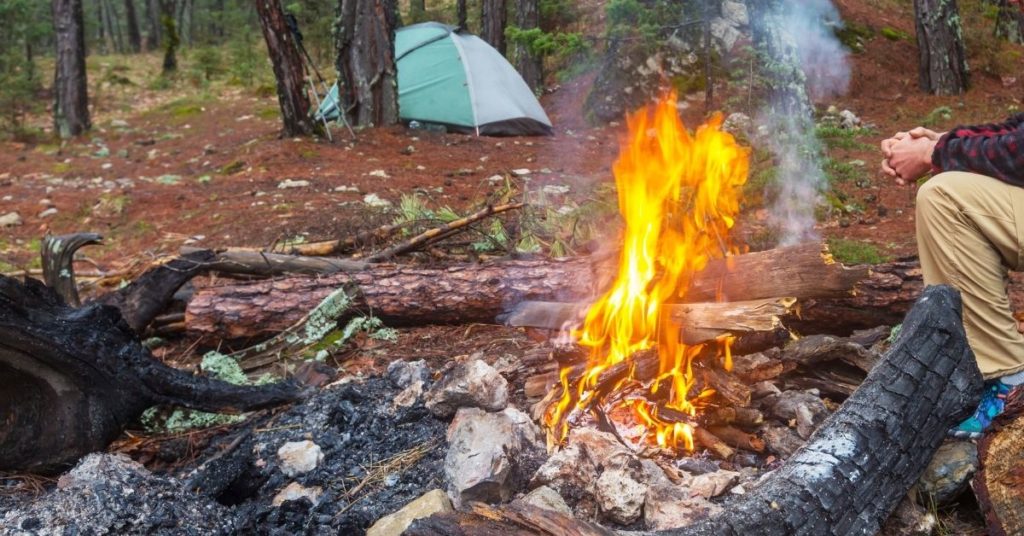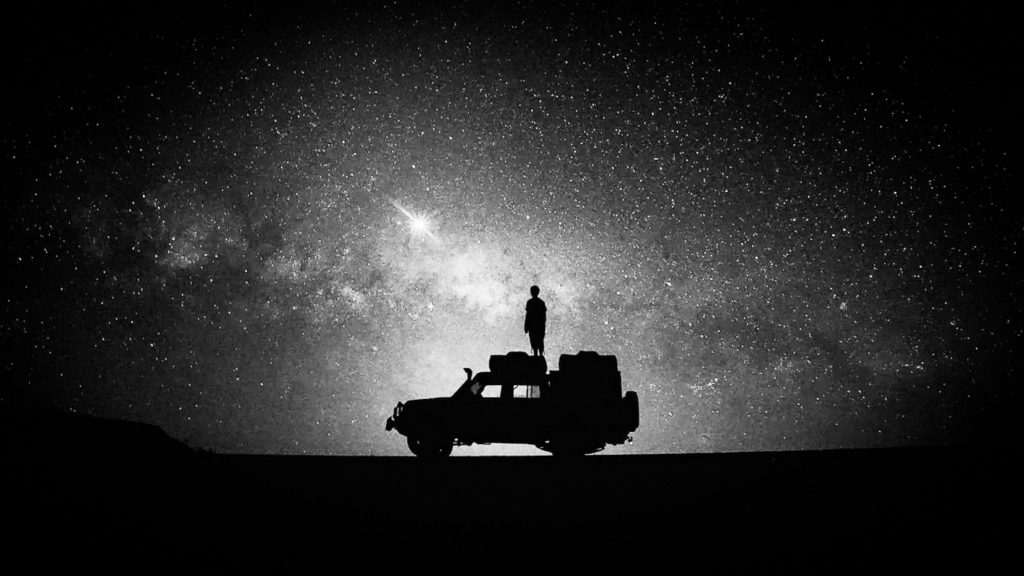Camping is a great way to enjoy nature and spend time outdoors without spending too much money. Overlanding involves traveling overland in vehicles specifically modified for long-distance travel through difficult terrains, such as off-road driving.
Overlanding offers more of an adventure travel experience than camping, with overlanders often venturing to the most isolated locations and enduring long drives and difficult conditions.
In this article, we’ll compare Overlanding and camping to help you decide which one is right for your next adventure. Additionally we’ll cover the pros and cons of each style of camping to help you decide which fits your life better.
Camping vs. Overland Travel: Which Is Best?
Campers can enjoy a quick overnight stay in their tents or RVs without having to make any modifications for off-road driving or traveling over large distances. They may even be able to carry more equipment than overland travelers due to limitations of vehicle size.
But if it’s an adventure you’re looking for, Overlanding is ideal for those looking for a longer stay over more extreme terrain. This type of camping lets you move about more than traditional camping allows, which means you can explore new areas even longer!
Also, Overlanding will allow campers to carry all their supplies with them across the country if they choose to do so, unlike other types of camping where visitors need access to vehicle support or other equipment before setting up their campsite.
Overlanding has over the years become a popular and stylish way to go camping or traveling for those who want to see more than just where they can park their vehicle. It’s an experience that allows people to engage with nature in ways they may not have been able to before!
Both overland travelers and campers can enjoy the great outdoors, but overland travel is often preferred by those looking for something more intense than camping alone.
Overlanding vs. Camping: Vehicle Limitations
Overlanders may be limited to what they can take on their overland adventure, as off-road vehicles are typically smaller than camping units. Overlanding involves using a build-out van or bus to explore longer distances, whereas camping is a stationary activity.
Vehicles used for overland travel are often smaller and not as comfortable to live in over an extended period of time. Many overlanders will tow a trailer or camper behind their vehicle that provides extra space for storing gear and supplies needed on the road.
Campers do not need to worry about parking restrictions or towed vehicles unless they are using an RV. Still, they can spend more money if they want additional comforts such as air conditioning units, refrigerators, TVs, etc.
Overlanding comfortably may require you to build out an existing vehicle, which can be more expensive upfront. However, Overlanding is great for those willing to invest the time and money needed to build out their rig because you can go further.
On the other hand, Campers do not need as much prep work but cost more upfront due to the higher prices of new models.
Overlanding Offers More for Adventure Seekers
For adventure seekers, Overlanding is the perfect combination between overnighters and camping. Overlanding offers more space to carry additional supplies, which means they can travel for longer distances without having to stop every few hours.
Overland trailers are often small campers that provide storage on top of extra sleeping rooms or even beds within them, so you only need one vehicle when you hit the road!
Unlike an Overland vehicle, a camper or trailer does not have its own transportation system. However, because it’s attached to your car, it will require less gas while you drive around.
This also allows overlanders to take shorter trips if needed since their home is mobile with them at all times! If you enjoy having all the comforts of home with you on the road, Overlanding might be the right choice for you.
Some overlanders even have storage space underneath them which can store:
- Tools
- Extra fuel
- Water tanks
- Additional seats, etc.
This way, you can be prepared for any situation when you’re Overlanding, including a breakdown or other emergency.
Camping Is Ideal for Short Trips or Families

Camping is ideal for families to get out over the weekend and enjoy a few days away from their busy lives.
Short camping trips are ideal for people who don’t have much time over the weekend, are heading out on a road trip over the next few months, or want to get away with their family.
Campsites will usually offer powered sites, but they may charge extra because it’s more convenient having access to power while camping at these campsites. Camping can be a more convenient way to enjoy a short time away, and it can also be cheaper than Overlanding.
Campers usually pay a fee to the campsite, which is much less expensive than Overlanding because all of your camping gear comes included in this price. Compared with overlanders who tend to spend extra money on things like fuel for their overland vehicle, camping will typically cost you much less when compared with other forms of travel.
The Pros and Cons of Overlanding
Overlanding offers a handful of advantages when compared to camping. For overlanders, things can be less restricted and more convenient than traditional camping.
The advantages of Overlanding over camping include:
- Overlanders are less restricted by park rules which means they can freely explore their surroundings without worrying about where they will be allowed to camp or go off-roading
- Overlanding also provides much more privacy because overlander’s often had large trailers or RVs attached to their cars, so other people cannot easily see what is inside them if you were camping in a tent instead
- Overlanders do not need as many supplies since most overland vehicles come equipped with necessities such as a kitchenette, sleeping arrangements, etc. However, it should be mentioned that these amenities add on another layer of cost!
The disadvantages of Overlanding, when compared to camping, include:
- More expensive overland vehicles
- Overlanders often need vehicles with lower gas mileage; this could equate to higher fuel costs when traveling over long distances in remote areas. For shorter trips around town, the benefits of owning a smaller vehicle may outweigh any cons encountered by not having enough room
- Additional requirements needed by overlanders could include cooking appliances, Overlanding camping, etc.
The few disadvantages of Overlanding compared to camping can be far outweighed by the sense of adventure it offers. With some preparation and work, many of the disadvantages of Overlanding can be worked around.
The Pros and Cons of Camping
Camping offers many advantages compared to Overlanding. There is generally a lower expense to camp than there is to purchase everything needed for Overlanding. With camping, you don’t need as much planning either.
Campers’ advantages over overlanders include:
- Having cheaper vehicles
- Less need for a support vehicle
- Larger carrying capacity for supplies and equipment
- Easier passage through international borders (if permitted)
However, there are some disadvantages to camping over overlanders as well. For instance:
- Campers have less space than overlanders which leads to limited amenities such as kitchenettes, etc.
- There is also the fact that everyone can easily see what you are doing since they will be able to spot your tent from far away if it’s not at night time!
- Camping may require a bit of extra work on cleaning up after yourself due to having no vehicle attached, so people cannot just go inside of them like Overlanding vehicles
Depending on your desires or limitations, camping may offer the convenience of a shorter stay over Overlanding. This can be ideal for families, or those with jobs that don’t allow them to work remotely.
Campers can enjoy going to places that overlanders cannot go as well as take advantage of amenities like access to bathrooms or showers at campgrounds along with other people’s supplies without having to carry their own.
Camping is an extremely popular outdoor activity that millions of people partake in over the course of a year. However, camping doesn’t necessarily mean pitching a tent and sleeping under the stars (although this can certainly be done).
Conclusion
If you’re ready for an adventure, Overlanding is the way to go. Overlanders often venture into remote locations and endure long drives with difficult conditions- making it a perfect travel option for those who want something more than just camping.
Many overlanders will tow a trailer or camper behind their vehicle that provides extra space for storing gear and supplies needed on the road. This Overlanding setup gives overlanders the comfort of camping but with all of their own equipment.
Campers do not need to worry about parking restrictions or towed vehicles. Still, they can spend more money if they want additional comforts such as air conditioning units, refrigerators, TVs, etc. The trade-off between these options depends on what you value most out of your outdoor experience!
- Tips and tricks For Setting Up Camp Like a Pro - September 11, 2023
- The Best Multi-Tools for Overlanding Adventures - August 25, 2023
- Off-Road Navigation Tips for Overlanders - August 13, 2023


